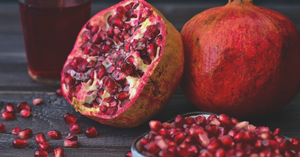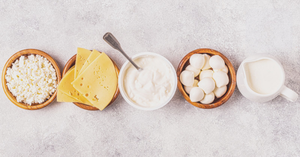There’s something magical about mangoes — the scent alone can whisk you back to summer afternoons, sticky fingers, and sunlit laughter. But for new parents, mangoes spark a different question: “When can I safely share this sunshine-sweet fruit with my baby?”
After all, introducing solids is an emotional milestone. But beyond the taste, mangoes pack a nutritional punch worth understanding. Read this article to explore to find out when babies can eat mangoes, what the right age is, benefits, and more.
When Is the Right Age for Mangoes?
Pediatricians generally recommend introducing mangoes to babies around 6 months of age, once they've started on solids like pureed vegetables or single-grain cereals.
Why wait until 6 months? Because before that, your baby’s digestive system isn’t ready to handle anything more complex than breast milk or formula. Starting too early might put unnecessary stress on their tiny tummies, even with fruits as gentle as mangoes.
Rich in Immune-Boosting Vitamins
The real magic of mangoes lies in their nutrient content. Mangoes are especially rich in Vitamin C — a vital player in building your baby’s immune system. Just one cup of mango chunks can offer over 60 percent of the daily Vitamin C needs for an adult, so imagine the impact of a baby-sized portion!
Vitamin C helps your little one fend off infections and boosts iron absorption, especially important during the rapid growth phase between 6 to 12 months.
A Natural Fiber Source for Digestive Health
Constipation is an all-too-common reality when babies transition from breast milk to solids. Mangoes offer a gentle helping hand here, too, thanks to their natural fiber content.
A single mango contains about 3 grams of dietary fiber, which aids digestion and helps regulate bowel movements. This can ease the tummy troubles many babies face when trying new foods for the first time.
A Friend to Growing Eyes
Mangoes don’t just charm with their color; they also nourish your child’s vision. The fruit is loaded with beta-carotene — the same compound that gives it that lovely orange hue.
Beta-carotene is converted into Vitamin A in the body, which plays a crucial role in eye health. According to the World Health Organization, Vitamin A deficiency is one of the leading causes of preventable blindness in children under five. Including mangoes in your baby’s diet is a sweet and simple step toward supporting sharp and healthy vision.
Mild, Natural Sweetness Without Added Sugar
The early months of solid foods shape your baby’s food preferences for life. Mangoes offer an all-natural sweetness that can replace the need for artificial sugar or flavored purees, which often sneak unnecessary sugars into a child’s diet.
The American Heart Association recommends avoiding added sugars entirely for children under two years old. Mangoes, with their naturally sweet profile, let babies develop a love for unprocessed, whole foods — all while satisfying those tiny taste buds.
A Versatile Ingredient for Baby-Friendly Recipes
Purees, smoothies, or even as finger food — mangoes are as versatile as they are nutritious. Once your baby is comfortable chewing (usually around 9 to 10 months), ripe mango cubes make for an excellent self-feeding food under parental supervision. This not only helps with nutrition but also encourages fine motor skills and independence.
Conclusion
The truth is, introducing mangoes to your baby’s plate is like offering a slice of sunshine wrapped in nourishment. Sweet, soft, and full of vital nutrients, this fruit checks almost every box for new eaters.








Be the first one to comment on this story.